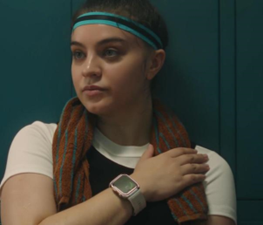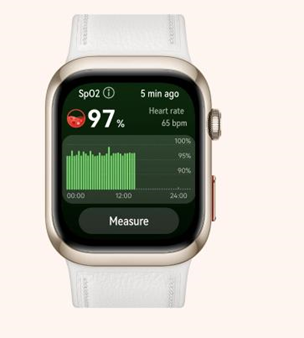Apple's raising privacy concerns with its devices.
Andrew Hoyle/CNET
Apple's long presented itself as a
bastion of security
, and as one of the only tech companies that
truly cares about user privacy
. But a new technology designed to help an iPhone, iPad or Mac computer
detect child exploitation images and videos
stored on those devices has ignited a fierce debate about the truth behind Apple's promises.
On Aug. 5, Apple announced a new feature being built into the upcoming
iOS 15, iPad OS 15
, WatchOS 8 and
MacOS Monterey
software updates designed to detect if someone has child exploitation images or videos stored on their device. It'll do this by converting images into unique bits of code, known as hashes, based on what they depict. The hashes are then checked against a database of known child exploitation content that's managed by the
National Center for Missing and Exploited Children
. If a certain number of matches are found, Apple is then alerted and may further investigate.
Apple said it developed this system to protect people's privacy, performing scans on the phone and only raising alarms if a certain number of matches are found. But privacy experts, who agree that fighting child exploitation is a good thing, worry that Apple's moves open the door to wider uses that could, for example, put political dissidents and other innocent people in harm's way.
"Even if you believe Apple won't allow these tools to be misused there's still a lot to be concerned about," tweeted Matthew Green, a professor at Johns Hopkins University who's worked on cryptographic technologies.
Apple's new feature, and the concern that's sprung up around it, represent an important debate about the company's commitment to privacy. Apple has long promised that its devices and software are designed to protect their users' privacy. The company even dramatized that with
an ad it hung just outside the convention hall
of the 2019 Consumer Electronics Show, which said "What happens on your iPhone stays on your iPhone."
"We at Apple believe privacy is a fundamental human right," Apple CEO Tim Cook
has often said
.
CNET Apple Report
Stay up-to-date on the latest news, reviews and advice on iPhones, iPads, Macs, services and software.
Apple's scanning technology is part of a trio of new features the company's planning for this fall. Apple also is enabling its Siri voice assistant to offer links and resources to people it believes may be in a serious situation, such as a child in danger. Advocates had been asking for that type of feature for a while.
It also is adding a feature to its messages app to proactively protect children from explicit content, whether it's in a green-bubble SMS conversation or blue-bubble iMessage encrypted chat. This new capability is specifically designed for devices registered under a child's iCloud account and will warn if it detects an explicit image being sent or received. Like with Siri, the app will also offer links and resources if needed.
Apple's system will also alert children about explicit images being sent or received on its messages app.
Apple
There's a lot of nuance involved here, which is part of why Apple
took the unusual step of releasing research papers

, frequently asked questions and other information ahead of the planned launch.
Here's everything you should know:
Why is Apple doing this now?
Enlarge Image
Apple's iCloud photo library syncing feature synchronizes images and videos between a person's devices and the company's servers.
Apple
The tech giant said it's been trying to find a way to help stop child exploitation for a while. The National Center for Missing and Exploited Children received more than 65 million reports of material last year. Apple said that's way up from the 401 reports 20 years ago.
"We also know that the 65 million files that were reported is only a small fraction of what is in circulation," said
Julie Cordua, head of Thorn
, a nonprofit fighting child exploitation that supports Apple's efforts. She added that US law requires tech companies to report exploitative material if they find it, but it does not compel them to search for it.
Other companies do actively search for such photos and videos. Facebook, Microsoft, Twitter, and Google (and its YouTube subsidiary) all use various technologies to scan their systems for any potentially illegal uploads.
What makes Apple's system unique is that it's designed to scan our devices, rather than the information stored on the company's servers.
The hash scanning system will only be applied to photos stored in iCloud Photo Library, which is a photo syncing system built into Apple devices. It won't hash images and videos stored in the photos app of a phone, tablet or computer that isn't using iCloud Photo Library. So, in a way, people can opt out if they choose not to use Apple's iCloud photo syncing services.
Could this system be abused?
China aggressively censors political speech and imagery.
Getty Images
The question at hand isn't whether Apple should do what it can to fight child exploitation. It's whether Apple should use this method.
The slippery slope concern privacy experts have raised is whether Apple's tools could be twisted into surveillance technology against dissidents. Imagine if the Chinese government were able to somehow secretly add data corresponding to the
famously suppressed Tank Man photo
from the 1989 pro-democracy protests in Tiananmen Square to Apple's child exploitation content system.
Apple said it designed features to keep that from happening. The system doesn't scan photos, for example -- it checks for matches between hash codes. The hash database is also stored on the phone, not a database sitting on the internet. Apple also noted that because the scans happen on the device, security researchers can audit the way it works more easily.
Is Apple rummaging through my photos?
We've all seen some version of it: The baby in the bathtub photo. My parents had some of me, I have some of my kids, and it was even a running gag on the 2017 Dreamworks animated comedy
The Boss Baby
.
Apple says those images shouldn't trip up its system. Because Apple's system converts our photos to these hash codes, and then checks them against a known database of child exploitation videos and photos, the company isn't actually scanning our stuff. The company said the likelihood of a false positive is less than one in 1 trillion per year.
"In addition, any time an account is flagged by the system, Apple conducts human review before making a report to the National Center for Missing and Exploited Children," Apple wrote on its site. "As a result, system errors or attacks will not result in innocent people being reported to NCMEC."
Is Apple reading my texts?
Apple isn't applying its hashing technology to our text messages. That, effectively, is a separate system. Instead, with text messages, Apple is only alerting a user who's marked as a child in their iCloud account about when they're about to send or receive an explicit image. The child can still view the image, and if they do a parent will be alerted.
"The feature is designed so that Apple does not get access to the messages," Apple said.
What does Apple say?
Apple maintains that its system is built with privacy in mind, with safeguards to keep Apple from knowing the contents of our photo libraries and to minimize the risk of misuse.
"At Apple, our goal is to create technology that empowers people and enriches their lives -- while helping them stay safe," Apple said in a statement. "We want to protect children from predators who use communication tools to recruit and exploit them, and limit the spread of Child Sexual Abuse Material."









